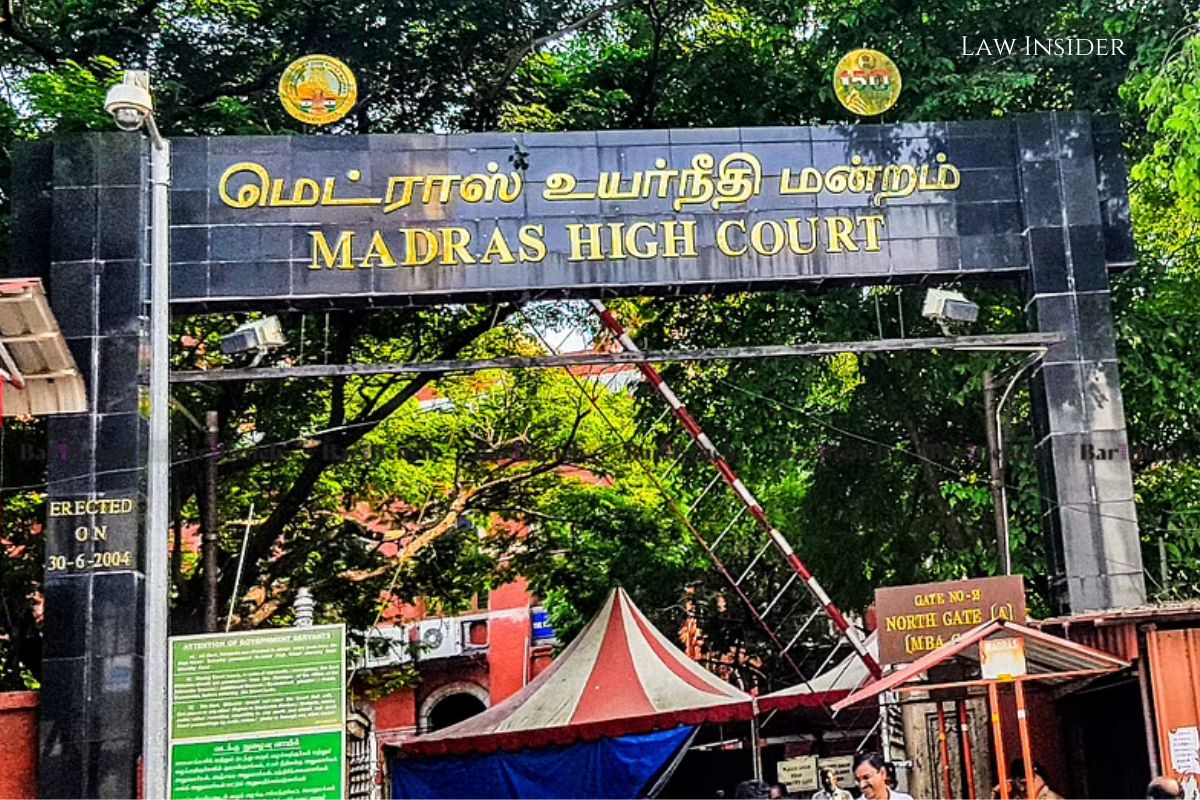Khushi Bajpai
Published on: September 8, 2022 at 21:22 IST
The Madras High Court has ruled that a court before which arbitration proceedings were initially filed alone has the authority to handle all subsequent applications arising out of the same arbitration agreement.
The parties involved in an arbitration proceeding cannot bring the identical case before additional courts, Justice RN Manjula pointed out.
The order stated, “It is established under Section 42 of the Act that if parties have chosen to file an application before a particular Court then they cannot go on to file other proceedings in other Courts and cause confusion in jurisdiction, regardless of the fact that they had reserved a particular jurisdiction by contract.”
A group of revision petitions submitted by three people who were participants in an arbitration hearing with a private infrastructure corporation were being heard by the court.
The three petitioners and the respondent firm initially agreed that Coimbatore, Tamil Nadu, would serve as the location of the proceedings because their claim relating to ownership of a plot of land emerged there. This was their original understanding when their case went to arbitration.
The year 2016 saw the High Court select an Arbitrator.
However, the respondent business submitted some initial proceedings in 2017 asking the Chennai High Court to appoint a new arbitrator. At this point, Chennai was chosen as the location of the petitioners’ and respondent’s arbitration.
After that, in October 2021, the respondent company appealed the final arbitral verdict before a Coimbatore court after being dissatisfied with how the case had turned out.
As a result, the petitioners went to the High Court to ask for the dismissal of the argument made before the Coimbatore court.
The appeal contesting the arbitral judgment should not have been filed before the district court in Coimbatore, according to the counsel for the three petitioners, since the parties had submitted to the jurisdiction of Chennai.
He said that the respondent had only sought the Coimbatore court’s assistance as a means of postponement.
The “Site of Arbitration” and the “Seat of Arbitration,” which was already agreed upon by the parties as Coimbatore and not Chennai, counsel for the respondent said, could not be equated.
He said that because the agreement’s subject matter is located in Coimbatore, the respondents have a strong case for claiming the Coimbatore court’s jurisdiction.
The Court did rule that the parties should have complied with any terms they had agreed to in their agreement, though.
The Bench referred to the 2017 agreement by which the petitioners and the respondent agreed to have the arbitration proceedings held in Chennai and said, “If the parties have chosen to deviate from the terms by not making much fuss about the terms, it would only mean that the parties have waived the same.”
“According to Section 42 of the Act, if the parties to the proceedings have chosen to file any Part One application before a particular Court, regardless of their agreement regarding the location of Arbitration.”
“Court alone shall have the jurisdiction over the arbitral proceedings, and all subsequent applications arising out of that agreement shall be made in that court and in no other court,” Justice Manjula said.
“The number of such deviations is limited to one because the parties are free to stray from the terms of jurisdiction. Therefore, it is appropriate for the revision petitioners to assert that the respondents should have only filed the current application before the Court in Chennai and not at Coimbatore, because by their own conduct, the respondents had submitted themselves to the jurisdiction of the Courts in Chennai,” It concluded in the end.
As a result, the petitioners’ modification requests were approved, and the Coimbatore court was given instructions to return the respondent company’s arguments.
The petitioners were represented by senior attorneys MS Krishnan and ARL Sundaresan, as well as attorneys Karthik Raja and Sundara Kadeswaran. N Sridhar and R Bharath Kumar, attorneys, represented the respondent.

